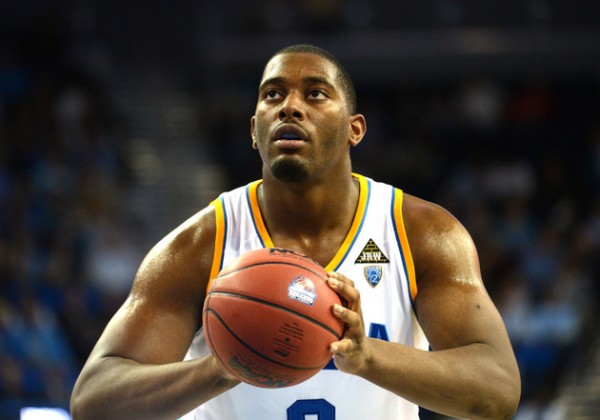Josh Smith’s Clearance a Game-Changer On and Off the Court
Posted by Bennet Hayes on October 26th, 2013When news broke Wednesday of Josh Smith’s accepted waiver and immediate eligibility for Georgetown, the bulk of the media reaction constituted pure shock. After all, without any known medical issues or hardship concerns facilitating the transfer, there was no indication that Smith would recoup two full seasons of eligibility after playing in six games as a junior at UCLA. The decision marks the latest puzzling chapter in the transfer waiver saga that unfolded over the offseason, and has left nearly everyone (outside the NCAA offices – or maybe not?) as confused as ever about the process – including CBSSports.com’s Gary Parrish. The folks at Georgetown may or may not be surprised by the news as well, but they are surely excited to have their big man ready for the season opener. As for the rest of us, the state of confusion we currently find ourselves in is understandable, but perhaps it’s time to give the NCAA the benefit of the doubt. They may have finally figured out that more leniency with the transfer policy benefits both the kids and the sport. Increased transparency from the governing body will be necessary at some point, but for now, I’ll take Smith’s immediate eligibility as a sign of changing times.

Thanks To A Generous NCAA Ruling, Josh Smith Will Be On The Court When Georgetown Kicks Off Their Season In Seoul, South Korea On Nov. 8 (Harry How/Getty Images)
When the NCAA overturned its own decision to deny Kerwin Okoro’s waiver request a month ago, we had to know then that the organization was finally beginning to hear the vitriol of fans and media surrounding the transfer issue. The Smith ruling may be a more subtle version of that phenomenon. Jay Bilas tweeted that the Smith ruling was “not objectionable,” but that what is objectionable is that “the NCAA rejects so many others, with no coherent policy.” Agreed, and while we have no coherent policy in place, the Smith decision certainly feels like the waving of the white flag. If the NCAA is going to set such a clear precedent with a case like Smith’s – after all the discussion on the waiver issue this offseason – we have to assume enough self-awareness on the part of the NCAA to presume that they are going to be taking a far softer approach to the issue. We can hope for a definitive public stance on the issue before next offseason, but the blatant nature of this case should mean we are headed for fewer denied waiver requests, and eventually, perhaps none.
While the Smith case may end up being historically significant for future transfer policies, it’s also a ruling that makes this Georgetown squad that much more formidable. While the Hoyas expected to have Smith back for Big East play either way, having him around for the team’s challenging early-season schedule not only gives John Thompson’s team a better chance at building a stockpile of non-conference wins, but also allows Smith the chance to settle in to his new surroundings. Rushing a player with noted commitment issues into an intricate, new system will surely be a challenge for the coaching staff, but at least he now has a full season to make it happen. The narrative with Smith is the same as it always has been – if he can reach his potential he is capable of changing a team and program, but we have yet to see him plow through enough of the question marks to even get close to doing that. Will the change of scenery help him get there? We now get to find out a little sooner than expected.











































